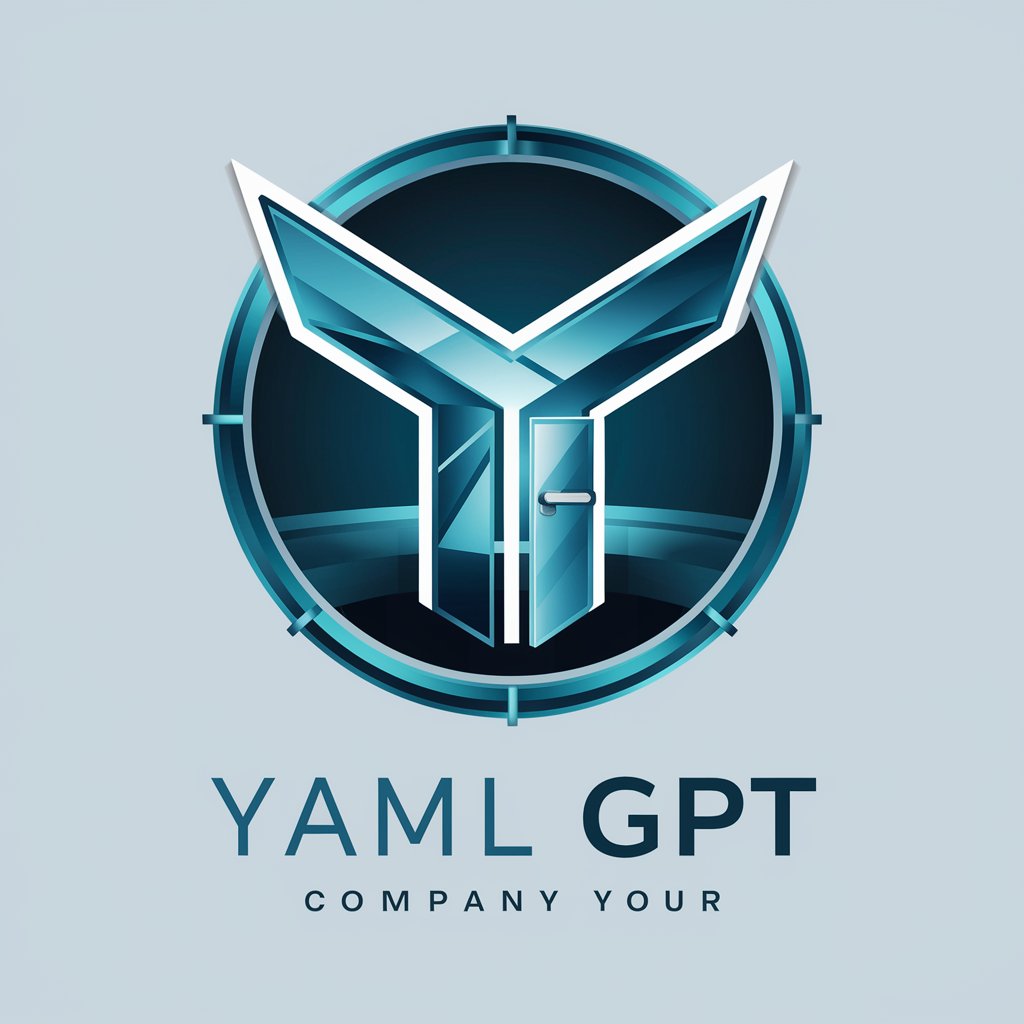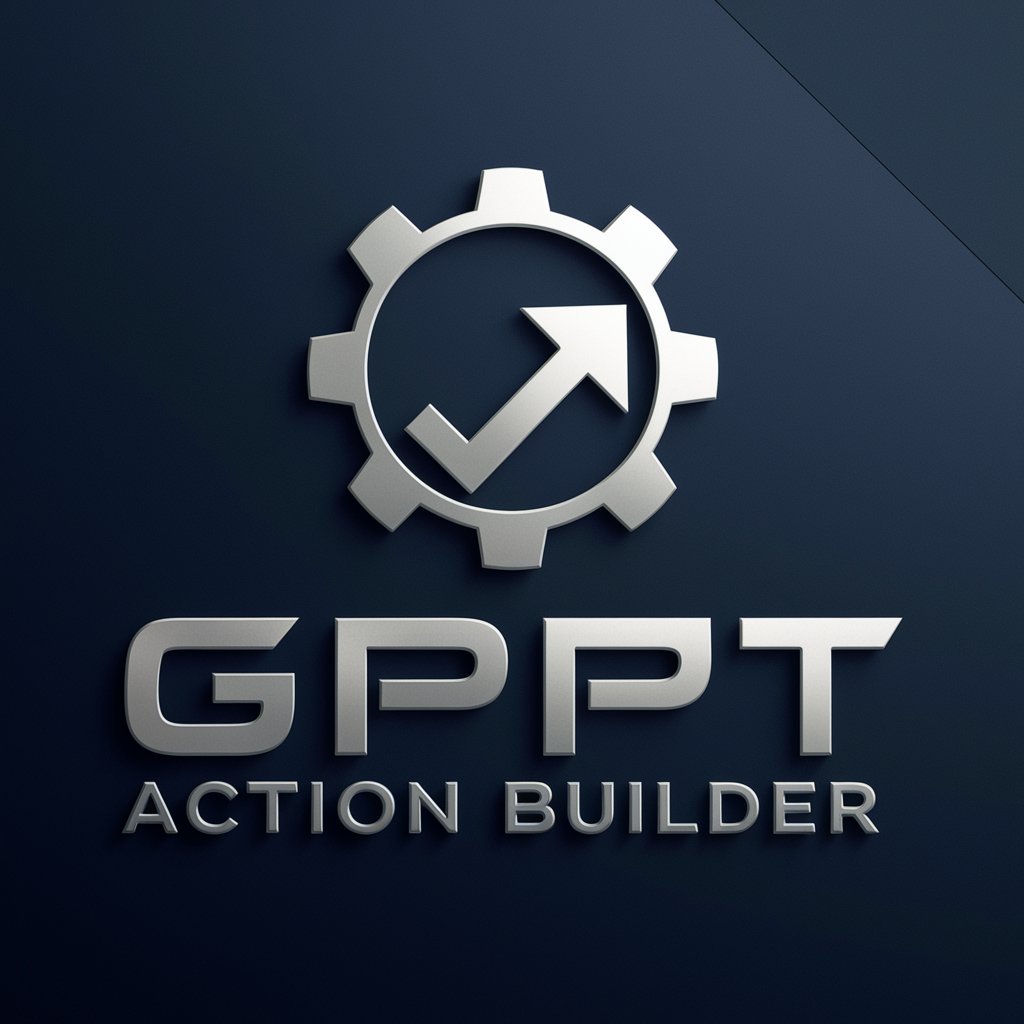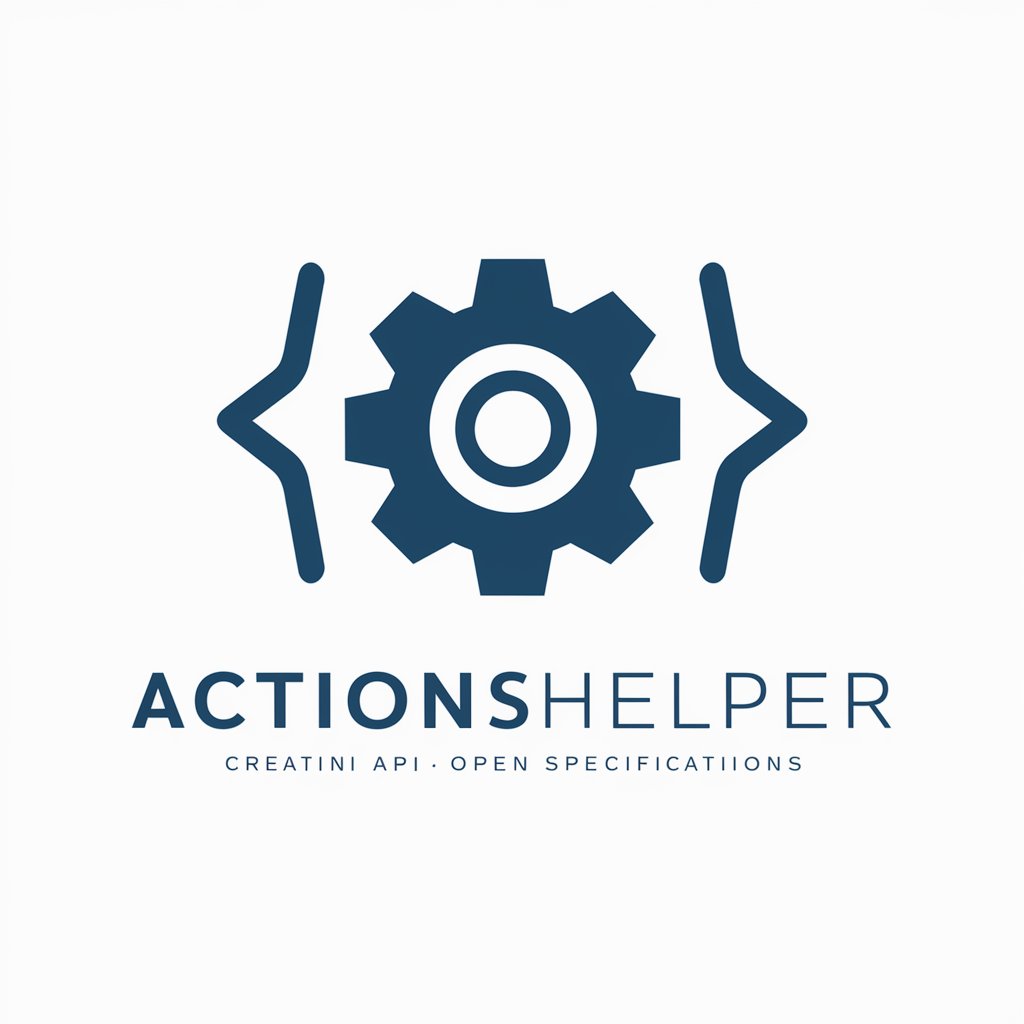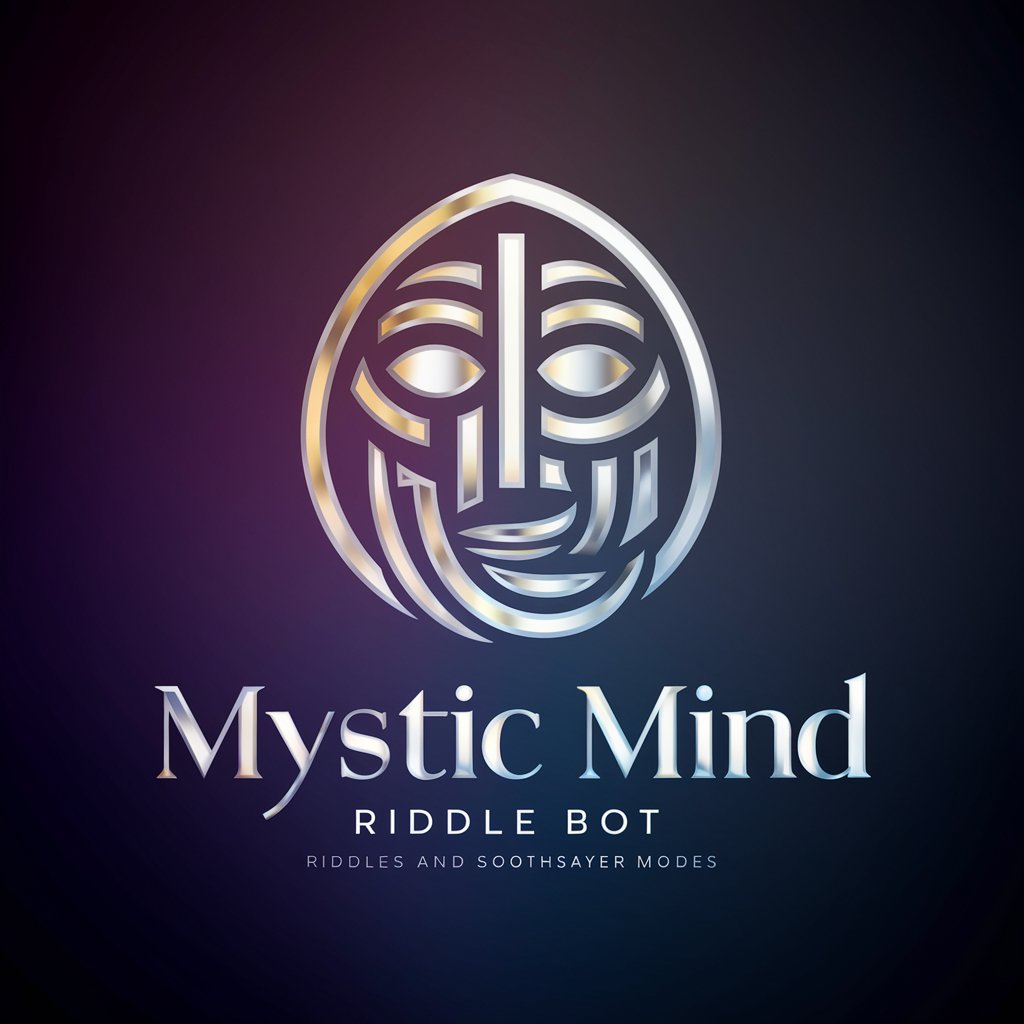YAML Actions OpenAPI Code Generator - OpenAPI YAML Generator

Hello, I'm YAML GPT, your expert in OpenAPI YAML.
Automating API Integrations with AI
Generate YAML code for an API endpoint that...
Create a JSON structure for a request that...
Provide an OpenAPI YAML definition that includes...
Design a custom GPT action in YAML to handle...
Get Embed Code
Overview of YAML Actions OpenAPI Code Generator
The YAML Actions OpenAPI Code Generator is a specialized assistant designed to generate YAML code for custom GPTs, aligning with OpenAPI 3.1.0 specifications. Its primary purpose is to create YAML configurations for defining API endpoints and JSON request structures within OpenAI's custom GPTs environment. By enabling the integration of third-party APIs, it allows GPTs to interact with external services directly through YAML formatted actions. This tool is particularly valuable in streamlining the process of integrating APIs by providing a structured and clear format for defining how GPTs should handle external API interactions. Powered by ChatGPT-4o。

Key Functions of YAML Actions OpenAPI Code Generator
API Endpoint Definition
Example
Defining the URL and the expected JSON structure for a weather API to retrieve current weather conditions.
Scenario
A user wants their GPT to provide current weather updates by calling a weather API. They need to specify the endpoint URL, the HTTP method (e.g., GET), and the structure of the JSON payload that the API requires for such requests.
Custom Actions Creation
Example
Creating a YAML configuration for a custom action that allows a GPT to fetch real-time stock market data.
Scenario
A financial analyst uses a custom GPT to query real-time stock prices. The YAML Action defines the API endpoint for a stock market service, detailing necessary headers, query parameters, and the JSON response format expected.
Error Handling and Response Parsing
Example
Configuring error handling paths within the YAML to manage different API response scenarios effectively.
Scenario
A developer wants to ensure that their GPT can gracefully handle any errors returned from a third-party payment gateway API. The YAML configuration includes error handling logic to parse and respond differently based on the error code received from the API.
Ideal Users of YAML Actions OpenAPI Code Generator
Developers and Software Engineers
This group benefits immensely as they can integrate complex APIs into GPTs without manually coding the interaction logic every time. It simplifies the process of extending GPT capabilities to interact with external systems.
Product Managers and Business Analysts
These professionals can prototype and experiment with new API-driven features quickly and efficiently using custom GPTs, enhancing their ability to deliver innovative solutions and make data-driven decisions.

How to Use YAML Actions OpenAPI Code Generator
Initial Access
Visit yeschat.ai to start using YAML Actions OpenAPI Code Generator with a free trial, no login or ChatGPT Plus subscription required.
Understand the Tool
Familiarize yourself with the tool's capabilities by reviewing the documentation provided on yeschat.ai, especially focusing on OpenAPI and YAML formatting.
Prepare API Details
Gather all necessary details about the API you want to define, including endpoint URLs, request methods, and expected response formats.
Draft YAML Code
Using the information collected, draft the YAML code to create your custom GPT's actions, defining endpoints and specifying parameters and schemas.
Test and Deploy
Test the YAML code to ensure it correctly interacts with the API. After successful testing, deploy the code within your project or workflow.
Try other advanced and practical GPTs
GPT Action Builder
Power Your Decisions with AI

ActionsHelper
Simplify API Design with AI

ActionsCreater-Actions助手
Automate API Spec Creation Effortlessly

CyberAssistant
Empowering cybersecurity with AI

DogGPT
Your Virtual Vet Assistant

DocGPT
Your AI Health Assistant

Gamer's Edge
Strategize, Play, Dominate: Your AI Gaming Coach

Unbiased Lookup
Explore every angle with AI

Mystic Mind (Akinator)
Challenge Your Mind with AI

Air Traffic Controllers Assistant
Elevate ATC Operations with AI

The Mouth Experts
Revolutionizing Oral Health with AI

Robert Dilts' Sleight of Mouth 14 reframe patterns
Transform Beliefs with AI-Driven Reframing

Frequently Asked Questions about YAML Actions OpenAPI Code Generator
What is YAML Actions OpenAPI Code Generator?
It's a tool designed to help users generate YAML code for defining API interactions in custom GPTs, based on the OpenAPI specification.
How does the generator support API versioning?
The tool supports various API versions by allowing users to specify version information within the YAML code, ensuring compatibility with different API standards.
Can I integrate external APIs with my custom GPT?
Yes, the YAML code generated allows for the integration of external APIs by defining actions that can interact with these APIs directly from your custom GPT.
Is there a limit to the number of API endpoints I can define?
No, there is no intrinsic limit. You can define as many API endpoints as needed within the YAML configuration based on your application's requirements.
What should I do if I encounter errors in my YAML code?
Ensure that your YAML code adheres to the OpenAPI specifications. Utilize online validators to check the syntax and structure of your YAML file.
